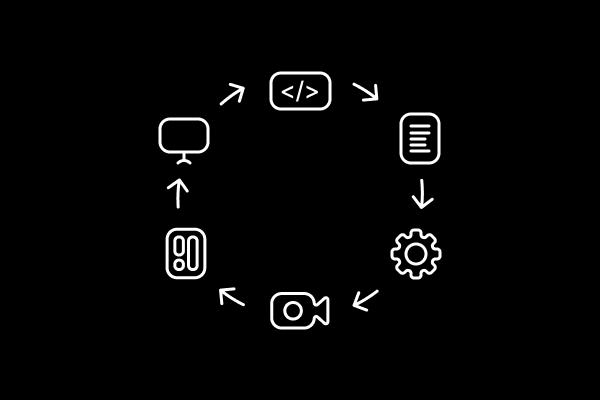What is Developer Relations?
Developer Relations (DevRel) is the practice of building relationships between a company and its developer community. It encompasses a mix of advocacy, education, and support, ensuring that developers have the tools, knowledge, and resources they need to be successful with a company's products or services. DevRel professionals act as a bridge between internal teams (engineering, product, marketing) and external developers, fostering a collaborative and engaging ecosystem.
How Developer Relations Creates Value
A Developer Relations unit is not just focused on engagement. It's not marketing for developers. It's much more. Their core value proposition is delivering tangible value to both developers and the business itself. This is done through an improved developer experience, which is a key benefit of Developer Relations.
Developer Tools
By offering clear documentation, SDKs, APIs, and tutorials, DevRel makes it easier for developers to integrate and use a company's technology or stack. The more devs use the stuff that your tech team builds, the better off your company is going to be. The tech innovation means nothing without adoption.
Community
Community building is another critical aspect that supports this concept. Through participating in events, actively engaging on forums, and creating vibrant online communities, DevRel nurtures a loyal and engaged developer base that contributes to product adoption and feedback.
Product Improvement
Product improvement is facilitated through DevRel efforts. If you don't know what your ecosystem's developers think, how can you improve your offering? By gathering insights from developers, identifying pain points, and collecting feature requests, companies can create better products that align with developer needs. Advocacy and brand awareness are strengthened by DevRel. Acting as a voice for both the company and the developer community, DevRel professionals promote products while also championing developer needs internally.
Business Growth
Business growth is directly impacted by Developer Relations. Engaged developers drive adoption, which leads to increased usage, revenue, and ecosystem expansion. Your leaders should be asking their developers what to use, and the answer should be your product and its ecosystem.
What a Developer Relations Team Does
A Developer Relations team typically consists of Developer Advocates, Technical Writers, Community Managers, and Developer Experience Engineers. Their responsibilities vary from company to company, but the end goal is the same: getting developers to love what you've built. A well-honed team will create a DevRel cycle that takes the output of your company's technological innovations, and uses it build hype, excitement, interest, and feedback.
Technical Content Creation
Technical content creation is a core responsibility for your DevRel unit. Writing blogs focused on new features and tech, tutorials showing how to use them, and documentation that helps developers understand and use your product effectively. Every new deliverable that they produce gets pushed out into the wider tech community as part of the wider story arc that your company writes.
Community Engagement
Community engagement often plays a crucial role in Developer Relations. Advocates go out into the wider tech community and find developers interested in your problem space, and convince them to be interested in your offering. They act as evangelists for your cause. They are the front lines in the push to grow your ecosystem.
Event Participation
Event participation helps build relationships with developers. This usually involves speaking at conferences, hosting meetups, and organizing hackathons to create opportunities for meaningful engagement and interest in what your company has built. The face-to-face engagement between your DevRel team and the community that it develops fosters trust and loyalty in a way that nothing else can.
Feedback Collection
Last, but not least, your DevRel team supports and onboards developers as they troubleshoot issues, adopt new technologies, and successfully integrate with the company's platform. Your DevRel team acts as an extension of the Support unit, ensuring that the knowledgebase is well-stocked, and developers get answers to their questions asap.
Why Developer Relations Matters
In today's technology-driven world, developers play a crucial role in product adoption and ecosystem growth. Without a strong Developer Relations unit, companies risk losing engagement, adoption opportunities, and valuable feedback from their developer communities. DevRel units ensure that people know what you've built, and why.
Developer Relations is not just a nice-to-have. It’s a strategic investment. Developer Relations should be seen as a core part of your company strategy. It plays a fundamental role in ensuring developers remain engaged, empowered, and invested in your ecosystem.
You're likely already investing for developers to create your technology. It's critical that you do the same for the team that will make sure that people use it, love it, and sing its praises to the world.
